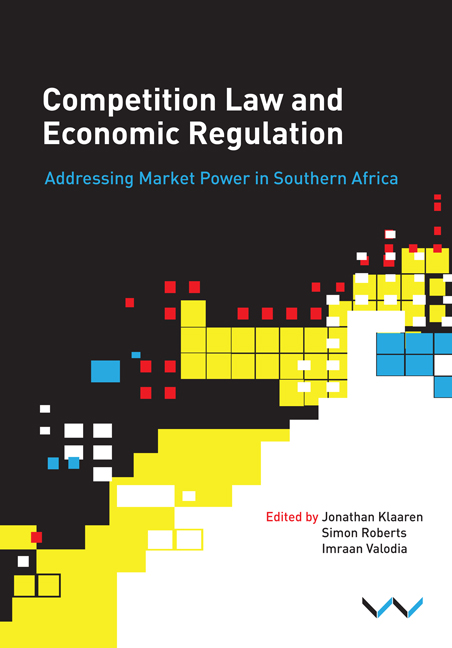 Competition Law and Economic Regulation in Southern Africa
Competition Law and Economic Regulation in Southern Africa Book contents
- Frontmatter
- Contents
- Tables, figures and boxes
- Acknowledgements
- Acronyms and abbreviations
- Introduction: The development of competition and regulation in southern Africa
- Part One Cartel law enforcement
- Part Two Issues in competition and regulation
- 4 Excessive pricing under the spotlight: What is a competitive price?
- 5 Competition and regulation interface in energy, telecommunications and transport in South Africa
- Part Three Competition and regulation in reshaping African markets
- Part Four Conclusion
- Contributors
- Index
4 - Excessive pricing under the spotlight: What is a competitive price?
from Part Two - Issues in competition and regulation
Published online by Cambridge University Press: 23 March 2018
- Frontmatter
- Contents
- Tables, figures and boxes
- Acknowledgements
- Acronyms and abbreviations
- Introduction: The development of competition and regulation in southern Africa
- Part One Cartel law enforcement
- Part Two Issues in competition and regulation
- 4 Excessive pricing under the spotlight: What is a competitive price?
- 5 Competition and regulation interface in energy, telecommunications and transport in South Africa
- Part Three Competition and regulation in reshaping African markets
- Part Four Conclusion
- Contributors
- Index
Summary
INTRODUCTION
Excessive pricing is arguably the most contentious area of competition enforcement in many jurisdictions. There are diverse views on the need for intervention by competition authorities in dominant firms’ pricing of products and services (Evans and Padilla, 2005b; Ezrachi and Gilo, 2009; Motta and de Streel, 2006; Roberts, 2008). Those arguing against intervention are of the view that it is generally unnecessary as prices significantly above a competitive level will ordinarily attract new entry, resulting in competition which will in turn drive prices down (Calcagno and Walker, 2010; O'Donoghue and Padilla, 2006). Other grounds that are often cited for limited or non-intervention are the difficulties in calculating the counterfactual or ‘competitive’ price for determining excessiveness and that enforcement of excessive prices may deter or chill investment (Ezrachi and Gilo, 2010; O'Donoghue and Padilla, 2013). The validity of the non-interventionist approach has, however, been questioned, with analyses showing that the self-correction argument may not hold in certain situations, particularly in small economies with highly concentrated markets and high barriers to entry (Ezrachi and Gilo, 2010). The difficulties of the assessment are not unique to excessive pricing. Other pricing contraventions, such as predatory pricing and margin squeeze assessments, are also highly complex, with the former requiring the determination of an appropriate measure of cost.
These diverse views have resulted in varying approaches by different jurisdictions. For example, the US has no provision in its antitrust policy that prohibits excessive prices and it is generally accepted that monopoly prices may be part of the dynamic competitive process. The view is that markets can ‘self-correct’ by attracting new entry. The European Commission (EC) has also adopted a limited intervention approach towards excessive pricing and there is a legitimate reluctance to act as price regulators who decide on what the right price should be. However, there are instances in which the EC will intervene (discussed below) (European Commission, 2016). Several member states’ competition authorities are more active than the EC in pursuing such cases.
The Competition Commission of South Africa has taken on a few excessive pricing cases under section 8(a) of the Competition Act of 1998. Under this provision, an excessive price is defined as a price for a good or service which bears no reasonable relation to the economic value of that good or service, and is higher than the value.
- Type
- Chapter
- Information
- Competition Law and Economic Regulation in Southern AfricaAddressing Market Power in Southern Africa, pp. 97 - 119Publisher: Wits University PressPrint publication year: 2017


